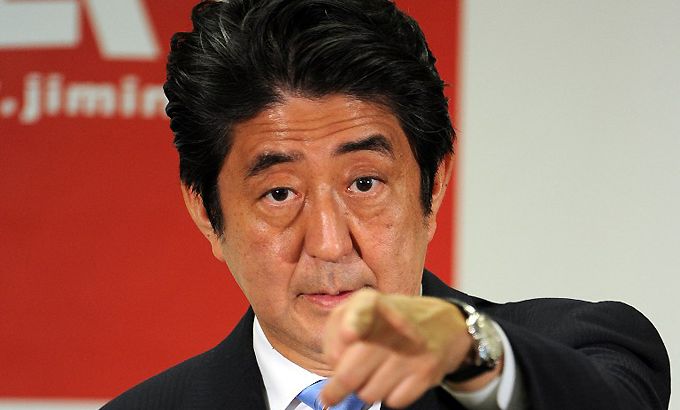Japan’s Abe pledges reform after poll win
PM says people voted for decisive and stable politics after ruling bloc gains control of both chambers of parliament.

Japanese Prime Minister Shinzo Abe’s ruling coalition has won a solid majority in the upper house of parliament in elections, gaining control of both chambers and a mandate to press ahead with economic reforms.
Abe said on Monday that his government would lose public confidence if it retreated from reform.
The win was an endorsement of the Liberal Democratic Party’s “Abenomics” programme, which has helped spark a tentative economic recovery in Japan.
It was also a vindication for Abe, who lost upper house elections in 2007 during his previous stint as prime minister.
“We’ve won the public’s support for decisive and stable politics so that we can pursue our economic policies, and we will make sure to live up to the expectations,” Abe told public broadcaster NHK late on Sunday after he was projected to win based on exit polls and early results.
“Now that we got rid of the twisted parliament, the LDP is going to face a test of whether we can push forward the economic policies so that the people can really feel the effect on their lives,” he said.
Official results are not expected until later on Monday, but according to preliminary results collated by local media, the LDP and its coalition partner, New Komeito, won a combined 76 seats, giving them a total of 133 of the 242 seats in the House, more than the 122 needed for a majority.
The country’s main opposition party, the Democratic Party of Japan, has just 59.
Low turnout
Voter turnout was low, suggesting a lack of public enthusiasm. According to Kyodo News agency, 52 percent of eligible voters cast ballots, the third-lowest turnout since the end of World War II.
|
|
| Japanese concerned over ‘Abenomics’ |
Abe, who returned to power after his coalition’s big win in a December lower house poll, repeated on Sunday that he would focus on fixing the world’s third-biggest economy with his “Abenomics” mix of hyper-easy monetary policy, fiscal spending and a growth strategy including reforms such as deregulation.
“We’d like to do our best to generate a positive cycle – in which job conditions improve and wages rise, boosting personal consumption and prompting companies to invest more – as soon as possible,” he said.
The victory also offers Abe more leeway to advance his conservative policy goals, including revising the country’s pacifist constitution and bolstering Japan’s military, which could further strain ties with key neighbours China and South Korea.
Al Jazeera’s Rob McBride, reporting from Tokyo, said, “The economy played a very big part in this election.”
Another issue which brought people to the polls was the way in which the two chambers were governed by opposing political parties.
“There is also a sense that this twisted Diet [parliament] of different parties controlling the different houses hasn’t worked. So there were many people voting LDP because they wanted to see an end to the deadlock.”
LDP leaders pledged the party would speed up decision-making and policy implementation, attempting to dispel speculation that they might shy away from reforming the labour market and removing trade barriers.
Now that the ruling bloc has control over both chambers, “we will push for politics that can make prompt, appropriate decisions”, LDP secretary-general Shigeru Ishiba told national broadcaster NHK.
The victory will allow Abe to push through painful structural reforms aimed at dragging Japan out of two decades of economic malaise.
But Abe faces a decision this fall on whether to follow through on raising the sales tax next April from 5 percent to 8 percent – a move that many worry would derail the recovery.